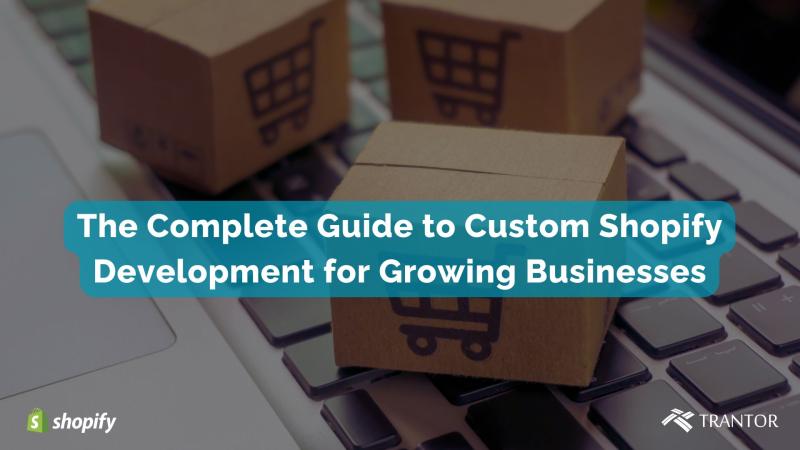Fintech Innovations vs. Short-Lived Fads: Navigating the Future of Financial Technology

The financial technology (Fintech) industry is constantly evolving, driven by innovations that aim to disrupt traditional banking and finance. From blockchain and cryptocurrencies to AI-driven financial services, the sector is marked by transformative trends. However, not all fintech innovations stand the test of time. Some fizzle out as fads, while others become lasting pillars of the financial ecosystem.
In this blog, we’ll explore the difference between sustainable fintech innovations and fleeting fads, and how businesses can leverage these trends to scale up their fintech products. Whether you're a startup or an established financial services provider, understanding which technologies are worth investing in can be crucial to your growth and success.
1. Sustainable Fintech Innovations
Some innovations have consistently proven to provide value to businesses and consumers. These trends are here to stay because they solve fundamental problems in finance, enhance user experiences, and improve operational efficiencies.
Artificial Intelligence and Machine Learning
Why It’s Here to Stay:
Artificial Intelligence (AI) and Machine Learning (ML) are revolutionizing the fintech sector by automating complex processes, improving decision-making, and providing personalized user experiences. Whether it's in fraud detection, credit scoring, or customer service chatbots, AI is making finance smarter and more efficient.
Impact on Scaling Fintech Products:
By incorporating AI and ML into their products, fintech companies can offer smarter solutions that scale easily. AI can help in personalizing financial advice, automating mundane tasks, and predicting future trends based on data analysis. For instance, robo-advisors have become increasingly popular for managing investments, thanks to AI-driven algorithms.
Blockchain and Decentralized Finance (DeFi)
Why It’s Here to Stay:
Blockchain technology, particularly through its decentralized finance (DeFi) applications, has the potential to revolutionize how financial services are delivered. It eliminates intermediaries, allowing for faster and cheaper transactions while increasing transparency and security.
Impact on Scaling Fintech Products:
Companies that adopt blockchain can scale up by offering more secure and efficient financial products. Whether through smart contracts or tokenization of assets, blockchain opens up a world of opportunities for fintech startups and traditional financial institutions alike. However, the complexity of blockchain integration requires expertise, and many companies are turning to technology providers like Trantor to guide them through the process.
Open Banking and API Integrations
Why It’s Here to Stay:
Open Banking allows third-party service providers to access banking data via Application Programming Interfaces (APIs). This has empowered fintech companies to offer innovative financial services by tapping into existing banking infrastructure. The regulation-driven shift towards Open Banking fosters competition and offers consumers more choices.
Impact on Scaling Fintech Products:
By integrating APIs into their offerings, fintech companies can provide a wider range of services without having to build every component from scratch. Open Banking APIs enable fintechs to collaborate with banks to offer seamless payment gateways, budgeting tools, and lending platforms. This opens up tremendous scaling opportunities as fintech companies can tap into the data and infrastructure of larger financial institutions.
Embedded Finance
Why It’s Here to Stay:
Embedded finance refers to the integration of financial services into non-financial products. For instance, platforms like Uber allow drivers to receive payments through their app, while eCommerce platforms offer loans and payment solutions within the purchasing process. This trend is growing because it adds convenience and efficiency to transactions.
Impact on Scaling Fintech Products:
Fintech companies that embed financial services into other industries can scale exponentially. By partnering with various platforms and ecosystems, fintechs can offer their services to a broader audience without needing to acquire customers directly. This has led to the rise of Banking-as-a-Service (BaaS) platforms, allowing fintech startups to scale more efficiently.
2. Short-Lived Fintech Fads
While many fintech innovations have staying power, others are more fleeting. These fads often generate initial excitement but fail to address long-term challenges, leading to their quick decline.
Initial Coin Offerings (ICOs)
Why It’s a Fad:
ICOs gained massive popularity as a way for startups to raise funds without going through traditional venture capital routes. However, the ICO boom quickly became associated with scams and poorly conceived projects, leading to a decline in trust and regulatory crackdowns.
What to Watch For:
While ICOs have largely faded, blockchain technology itself is still very much in play. Companies that want to scale using blockchain should focus on long-term, sustainable solutions such as security tokens or regulated digital currencies rather than chasing quick ICO gains.
Cryptocurrency Debit Cards
Why It’s a Fad:
While cryptocurrencies like Bitcoin and Ethereum have gained mainstream attention, cryptocurrency debit cards have struggled to find widespread adoption. These cards allow users to spend their digital currencies like cash, but fluctuating exchange rates, high fees, and limited usability have stunted their growth.
What to Watch For:
Cryptocurrency as an investment or a store of value may continue to grow, but its day-to-day transactional use through debit cards remains limited. Fintechs should focus on developing wallets or payment systems that offer more flexibility and lower fees if they wish to scale in the cryptocurrency space.
Peer-to-Peer (P2P) Lending Platforms
Why It’s a Fad:
Initially, peer-to-peer (P2P) lending platforms were hailed as disruptors of traditional banking by allowing individuals to lend directly to borrowers. However, regulatory scrutiny, rising default rates, and a lack of liquidity have made it difficult for these platforms to achieve long-term viability.
What to Watch For:
While P2P lending may still have niche applications, most fintechs would be better off focusing on more scalable and regulated lending models. Traditional lending platforms that leverage AI for credit scoring and risk assessment are proving to be more sustainable.
3. How to Scale Up a Fintech Product Amid These Trends
Scaling a fintech product in this evolving landscape requires a strategic approach. Here are some key areas to focus on:
1. Build Scalable Infrastructure
When scaling, having a solid technological foundation is essential. Cloud-based solutions allow for easier scaling as they can handle increased traffic and data processing without significant downtime. Partnering with technology providers like Trantor can help fintech companies build robust infrastructure that can handle rapid growth.
2. Embrace Regulatory Compliance
Regulation is one of the biggest hurdles for fintech companies. However, staying ahead of regulatory changes is crucial for scalability. Invest in a compliance team or partner with a fintech solutions provider who understands the regulatory landscape. This will allow you to scale without running into legal complications.
3. Focus on User Experience
As fintech products scale, maintaining a seamless user experience becomes more challenging. AI-driven personalization and user-centric design should remain a priority. Even as your customer base grows, providing a customized experience will help retain users.
4. Leverage Partnerships and Ecosystems
Collaborating with established financial institutions or technology platforms can significantly accelerate growth. For example, open banking and embedded finance can help fintech companies tap into existing customer bases and infrastructures. Establishing these partnerships early on will pave the way for easier scaling later.
5. Use Data for Predictive Analysis
Data analytics is crucial for predicting customer behavior and scaling your fintech product. By utilizing AI and machine learning, fintech companies can make data-driven decisions to improve user engagement, reduce churn, and drive growth.
Conclusion
Fintech innovations continue to push the boundaries of what’s possible in financial services. However, understanding the difference between lasting trends and short-lived fads is crucial for any company looking to scale. By focusing on sustainable innovations like AI, blockchain, and open banking, fintech companies can position themselves for long-term success.
For fintech businesses aiming to scale, it’s not just about adopting the latest trends, but about implementing the right technologies that align with both market demand and regulatory requirements. Companies like Trantor specialize in offering solutions that help fintech businesses navigate these complexities and scale successfully. Whether it’s building scalable infrastructure or integrating cutting-edge technologies, Trantor can help you build a fintech product that lasts.










Comments